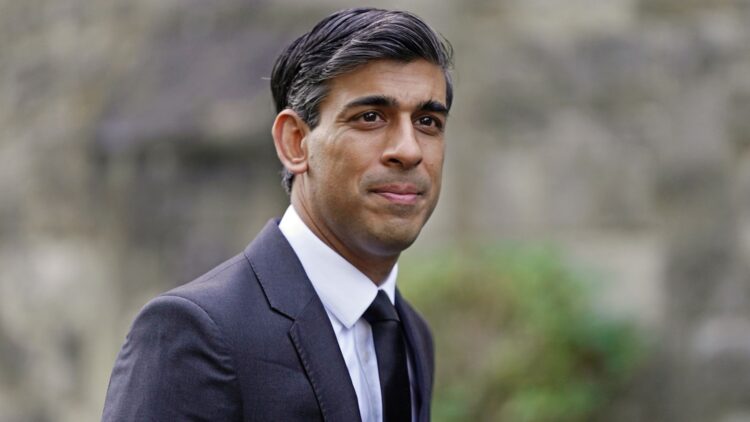By Ben Kerrigan-
The British police are likely to be empowered to shut down protests before they cause serious disruption, under new government plans.
Downing Street said the proposals would help officers clamp down on “a disruptive minority” who use tactics like blocking roads and slow marching.
The changes seek to give police greater flexibility and clarity over when they can intervene, but the government has not stated under what laws it would justify its actions.
The new law under the grounds that it obstructs the right to freedom of movement protected under the Human Rights Act which obstructs members of the public from going to work and
The plans will be set out in an amendment to the Public Order Bill, due to be introduced on Monday.
The bill, which covers England and Wales, is making its way through Parliament and any changes would have to be approved by MPs and peers.
Its aim is to crack down on disruptive protests by groups like environmental activists Just Stop Oil, Insulate Britain and Extinction Rebellion, which have used tactics including blocking roads.
No 10 said the changes would mean police would not have to wait for disruption to take place to shut down a protest.
It said forces could also consider the “total impact” of a series of protests by the same group, rather than seeing them as standalone incidents.
Prime Minister Rishi Sunak said: “The right to protest is a fundamental principle of our democracy, but this is not absolute. A balance must be struck between the rights of individuals and the rights of the hard-working majority to go about their day-to-day business.
“We cannot have protests conducted by a small minority disrupting the lives of the ordinary public. It’s not acceptable and we’re going to bring it to an end.”
Chief Constable BJ Harrington, the National Police Chiefs’ Council lead for public order and public safety, said: “This will support officers in confidently and quickly taking action and making arrests where appropriate.
“Policing is not anti-protest, but there is a difference between protest and criminal activism, and we are committed to responding quickly and effectively to activists who deliberately disrupt people’s lives through dangerous, reckless, and criminal acts.”
Metropolitan Police Commissioner Sir Mark Rowley also backed the proposals, saying the lack of clarity in legislation was drawing police into “complex legal arguments about the balance between that right to protest and the rights of others to go about their daily lives free from serious disruption”.
Lack Of Clarity
The Metropolitan Police says a lack of legal clarity has drawn police into “complex legal arguments” on protests
However, Martha Spurrier, director of human rights group Liberty, said the proposals were “a desperate attempt to shut down any route for ordinary people to make their voices heard”.
“Allowing the police to shut down protests before any disruption has taken place simply on the off-chance that it might sets a dangerous precedent, not to mention making the job of officers policing protests much more complex,” she said.
Labour’s shadow minister for Policing, Sarah Jones, said: “The police have powers to deal with dangerous, disruptive protests and Labour backs them to use those powers.
“But the prime minister has spent more time talking about protest than he has the epidemic of violence against women and girls or his government’s shameful record prosecuting criminals.”
The Just Stop Oil group described the proposal as “a sinister and authoritarian attempt to undermine the basic human rights that underpin our democracy”.
The bill builds on the controversial Police, Crime, Sentencing and Courts Act, which passed last year and was criticised by some groups for introducing curbs on the right to protest.
Under this existing legislation, if the police want to restrict a protest, they generally have to show it may result in “serious public disorder, serious damage to property or serious disruption to the life of the community”.
The new government proposals would broaden the current legal definition of “serious disruption” and give officers greater clarity on when they should intervene
Human rights group Liberty condemned the proposals as amounting to an attack on the right to protest, but have not addressed the fact that reckless protests also tramples under other Human Rights.
A statement from the group read: “Protest is a fundamental right, not a gift from the State. But our right to protest continues to be attacked by a Government determined to silence people and hide from accountability.
“These new proposals should be seen for what they are: a desperate attempt to shut down any route for ordinary people to make their voices heard. Allowing the police to shut down protests before any disruption has taken place simply on the off-chance that it might sets a dangerous precedent, not to mention making the job of officers policing protests much more complex.
“From championing refugee rights to raising the alarm on the cost-of-living crisis, striking for workers’ rights, and fighting for racial and climate justice, protest today remains a crucial way for people to hold the Government to account. This latest attack on our rights must be resisted.
Shutting down protests before any disruption have taken place would be unjustifiable except where protesters have given clear indication that excessive disruptions are part of the plans of the protest.
The balancing act of The Human Rights Act is always important and never to be ignored.

